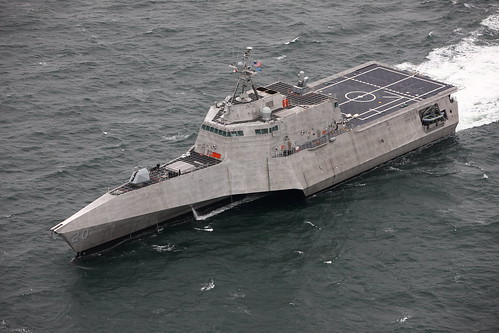Daily Business Report-July 26, 2019
Business owners who do have insurance are struggling to pay their premiums and sustain their businesses.
Commentary
California’s small business owners cannot
afford health care. Here are ways to help
By Mark Herbert | Special to CalMatters

Alma Beltran owns a successful small business, but that doesn’t mean she can afford health care for herself and her family.
In fact, the Chula Vista entrepreneur who is president of Graphic Image Label Inc., is facing a hard choice between the health of her loved ones and the health of her business. It’s all because the size of her household shrank after one of her children went to college.
“Since I no longer qualify for federal assistance, my health care premium costs six times as much as it did before,” Alma said in a March phone conversation with Small Business Majority staff.
“So far this year I have not been able to afford paying my premium. I must now decide between going without insurance and keeping my business, or closing my business so I can find a job with health coverage.”

The Affordable Care Act (ACA) is the first meaningful health care reform that helped address the needs of small businesses, their employees and the self-employed. But we cannot overlook the fact that nearly 3 million Californians still do not have insurance.
Of those who are uninsured, roughly 324,000 are solo entrepreneurs and 44 percent work at a small business.
Alma and business owners like her who do have insurance are struggling to pay their premiums and sustain their businesses.
Fortunately, they will get some relief thanks to a provision in California’s 2019-2020 budget.
Consumers, who do not qualify for federal premium subsidies, will get additional assistance through a state tax credit. It will apply to people who are between 400-600 percent of the federal poverty level.
This change is critical for many entrepreneurs. The median income of an incorporated small business is about $57,000, but the cutoff for health care subsidies was about $50,000.
While this is an important first step, much more can and should be done to address this issue. Specific proposals small businesses support include:
- Providing additional assistance to those making close to 600 percent of federal poverty leve. Once the new premium assistance included in the budget is implemented, it is still likely that individuals earning close to $72,840 may spend close to 18 percent of their income, or about $13,000, on health care premiums. In order to make insurance more affordable for middle income business owners, we recommend limiting the out-of-pocket max to 10 percent of income spent on premiums.
- Passing Assembly Bill 824 by Assemblyman Jim Wood, Democrat from Healdsburg. The bill would prohibit agreements in which drug manufacturers pay generic companies to delay the introduction of lower-price medications to the market. This measure would help ensure small business owners have access to affordable, quality health care options.
As beneficial as the Affordable Care Act has been to California’s small firms and solo entrepreneurs, we cannot ignore the fact that millions of Californians still do not have insurance.
The only way to ensure small business owners, their employees and the self-employed have access to the affordable coverage that is necessary for their success is by making quality, affordable healthcare available to everyone.
Mark Herbert of Concord is Small Business Majority’s California director, mherbert@smallbusinessmajority.org. He wrote this commentary for CalMatters, a public interest journalism venture committed to explaining how California’s Capitol works and why it matters. To read his past commentary for CalMatters, please click here.
_______________
Civic legend George Mitrovich,
founder of City Club, dies at 84
Times of San Diego

At 84, George Mitrovich kept up a nearly daily patter of baseball musings, shared with his more than 1,000 friends and family members on Facebook. But his last posting was July 8 — noting two home runs by “20-year-old wiz kid” Fernando Tatis Jr.
His silence was soon explained.
The San Diego native and democratic civic legend was being treated for metastatic cancer — melanoma having spread to his brain.
On Wednesday, Mitrovich died at Sharp Hospice at Sharp Memorial Hospital.
The news prompted a flood of memories from people across the country who found connections with him via politics, baseball or his public forums, including the 1975-founded City Club of San Diego.
This country lost one of its finest citizens,” wrote Tim Peeler of North Carolina. “A kind man, generous with his time and the enormous gift of his friendship.”
Peeler recalled having breakfast with him in Boston several years ago, where he “chatted up our waitress, a foreign student, studying at one of the local universities. She was excited because she was going to Washington D.C. for the weekend.”
Then came what he called a Mitrovich Moment: “Before the meal was done, George had made a phone call and arranged for her to tour the Senate Chambers.”
_______________

Navy sets commissioning date for future
USS Cincinnati, to be homeported in San Diego
The U.S. Navy has approved the commissioning date for the future littoral combat ship USS Cincinnati, which will be homeported in Naval Base San Diego. The Navy will commission the ship Oct. 5 in Gulfport, Miss.
Former U.S. Secretary of Commerce Penny Pritzker is the ship’s sponsor. Indianapolis, Ind. native Cmdr. Kurt Braeckel is the commanding officer of the littoral combat ship.
Former Secretary of the Navy Ray Mabus announced that the ship would be named for Cincinnati at the Cincinnati Reds baseball game on July 19, 2015.
It will be the fifth ship named Cincinnati. The first played an integral part in the Civil War; the second enforced neutrality laws during the Cuban Revolution and saw service during the Spanish-American War; the third acted as a patrol and flagship during World War II; and the fourth, a Los Angeles class submarine, was commissioned in 1978 and served during the Cold War.
LCS is a highly maneuverable, lethal and adaptable ship designed to support focused mine countermeasures, anti-submarine warfare and surface warfare missions. The LCS class consists of two variants: the Freedom variant and the Independence variant. Indianapolis is a Freedom variant.
_______________

City says scooter companies violating
regulations, have until July 29 to comply
The city of San Diego has sent notices of violation to Lime, Bird, Skip and Lyft electric scooter companies, who are not complying with geofencing and other regulations that took effect July 1 with a new city ordinance.
“Bird has violated geofencing requirements in nine different locations across the city, with Lyft and Lime doing so in seven locations,” wrote Mayor Kevin Faulconer on Twitter. “This is unacceptable. Each has been ordered to comply by July 29 or cease operating in San Diego.”
Senior city press secretary Christina Di Leva Chadwick said the city has also been actively enforcing and impounding scooters that are out of compliance. “City crews impounded more than 2,500 scooters during the Comic-Con alone,” she said. “The impound fee is $65 per SDM and a $1 per day storage charge. No storage fee is charged to the Comic-Con related impounds.
“The violating operators have 10 days to fix the issues or they must cease operations until the issues have been addressed,” said Di Leva Chadwick. “The city will also move forward with non-compliance proceedings to revoke permits for those operators who don’t comply.”
_______________
Stephen Roach receives Appraisal Institute’s
Lifetime Achievement Award

Stephen D. Roach of San Diego, was named the recipient of the Appraisal Institute’s Lifetime Achievement Award during the organization’s annual conference in Denver. The Appraisal Institute is the nation’s largest professional association of real estate appraisers with nearly 18,000 professionals in almost 50 countries.
The Lifetime Achievement Award is presented to an Appraisal Institute individual who demonstrates high ethical standards; has volunteered several years of service and has contributed to the Appraisal Institute on the international, national, region and/or chapter level; has served his or her community; and has contributed to the appraisal profession for at least 20 years.
Roach is president and chief financial officer of Jones, Roach & Caringella Inc. in San Diego. The appraisal and consulting firm provides a diverse range of services to corporations, governments, institutions, law firms and private clients.
Roach is chair of the Appraisal Institute’s Education Committee, a member of the Body of Knowledge Committee, a trustee of the Appraisal Institute Education and Relief Foundation, a member of The Appraisal Journal Editorial Board and a member of the Comprehensive Examination Panel.
_______________
MiraCosta Community College District awards
contract for San Elijo Campus construction project
MiraCosta Community College District’s Board of Directors has approved the award of a contract to modernize an existing classroom building at the district’s San Elijo Campus. The $2,601,000 contract was awarded to Conan Construction, which has offices in Encinitas and National City.
The modernization project of Building 500 will begin this month and is expected to be completed in July 2020. The project will provide two new computer labs, new electrical, mechanical, and plumbing systems, retiling of the roof, along with the addition of new classroom equipment, new furnishings, and extensive landscape improvements.
The project architect is Little. Other project partners include Kitchell, providing overall management of the capital improvement program, as well as construction management services; Alliance Engineering, providing project inspection, and MTGL, providing special inspection and material testing.
The project is funded through MiraCosta’s capital improvement program, using funds from Measure MM, the $455 million general obligation bond approved by voters in 2016.




